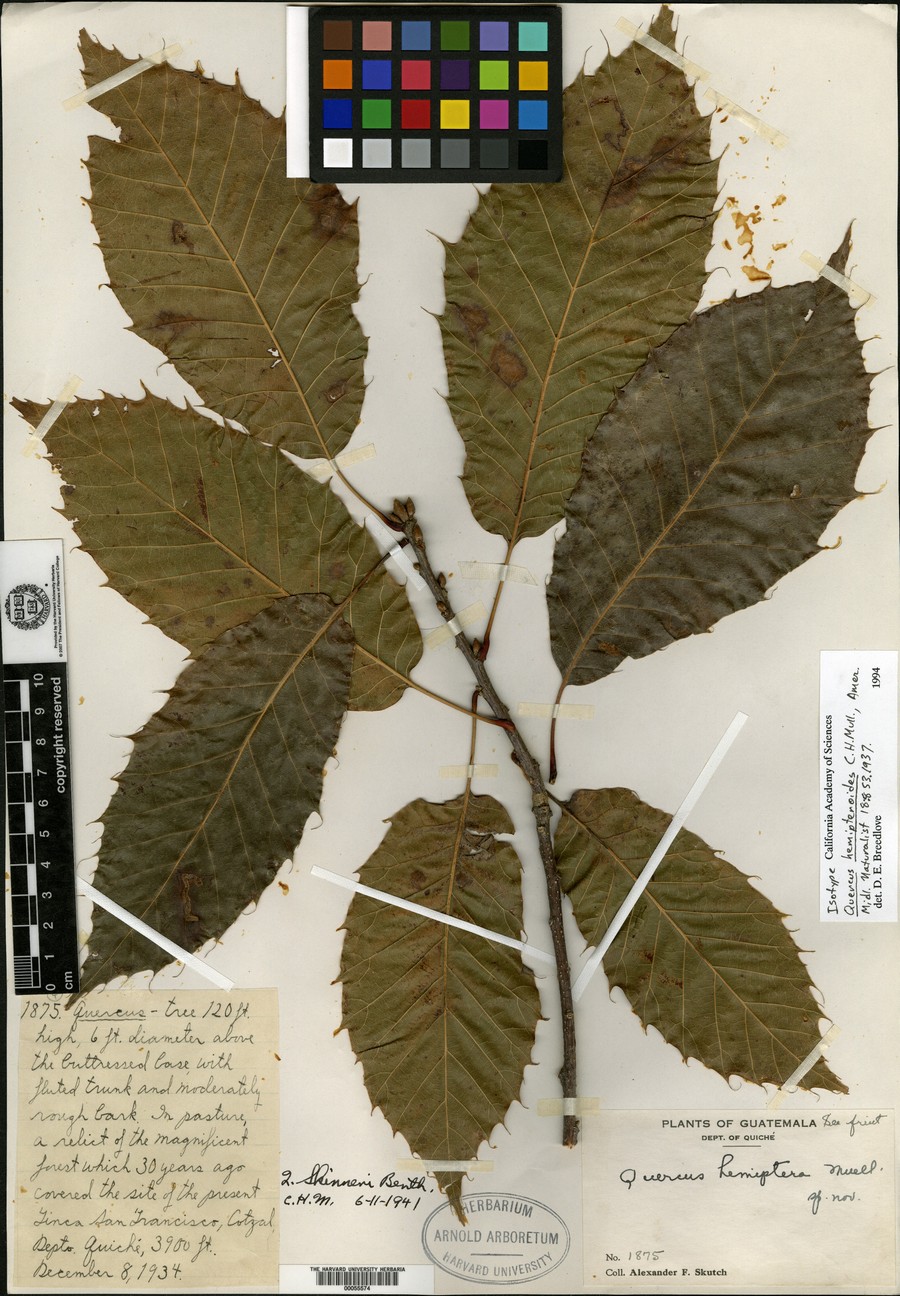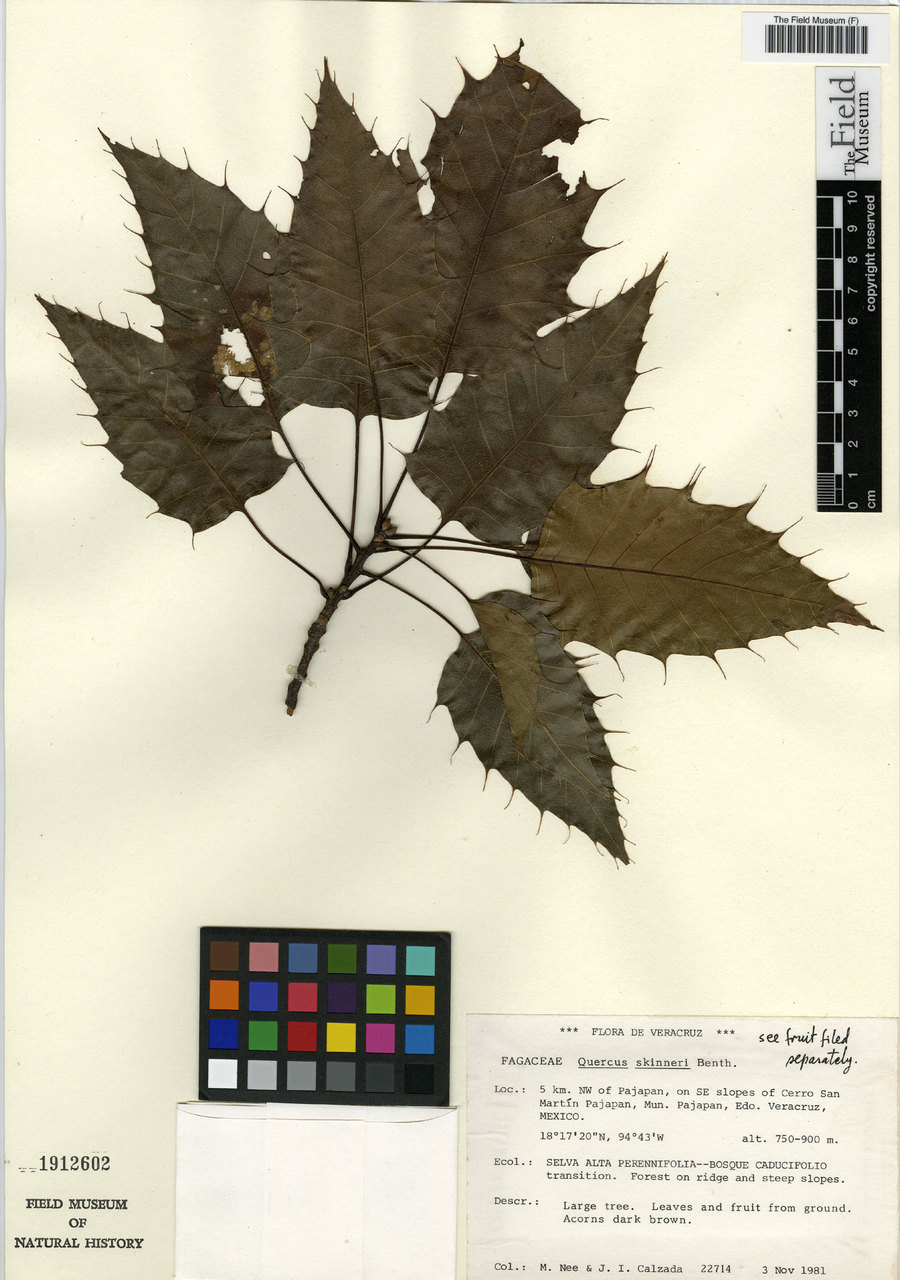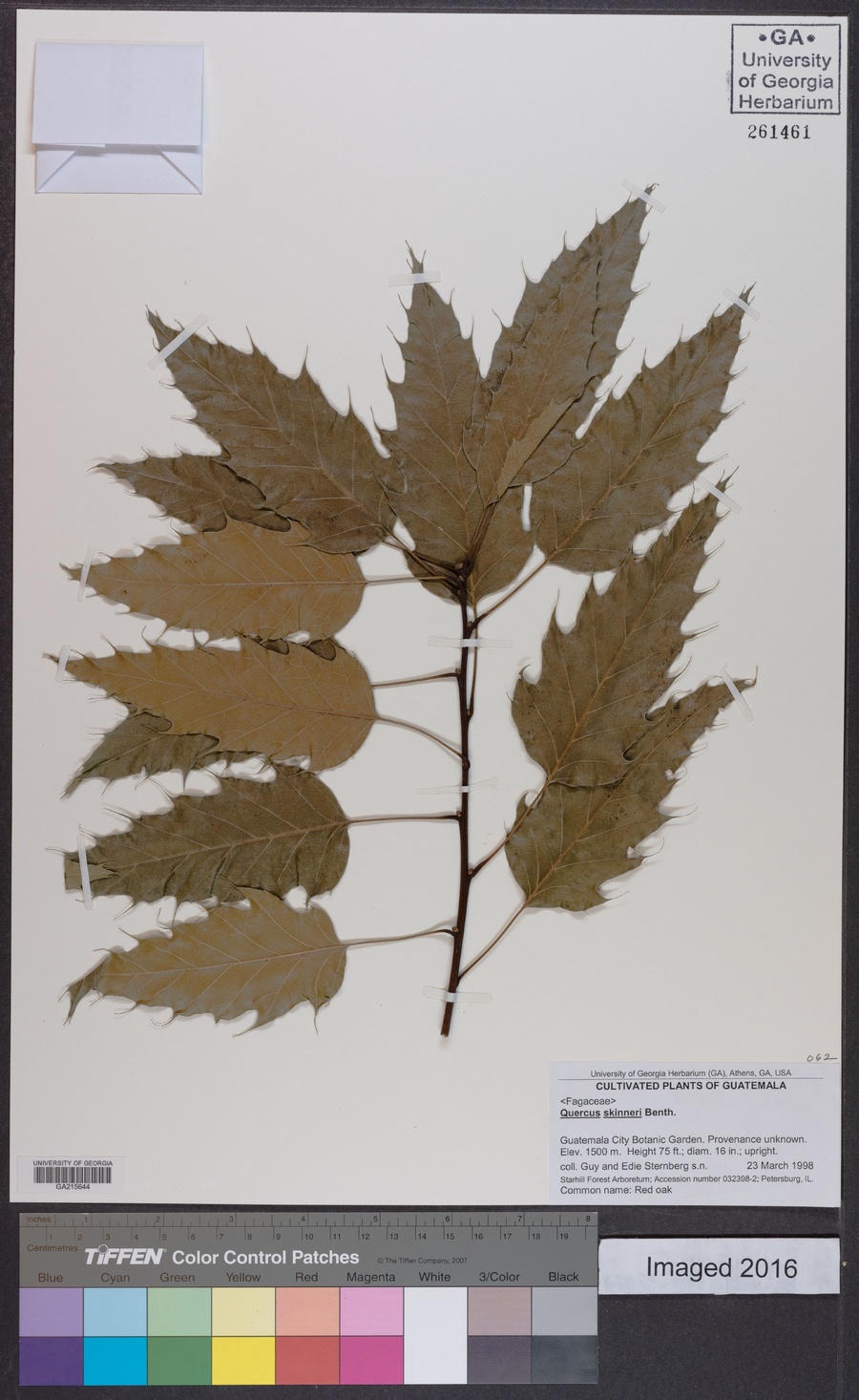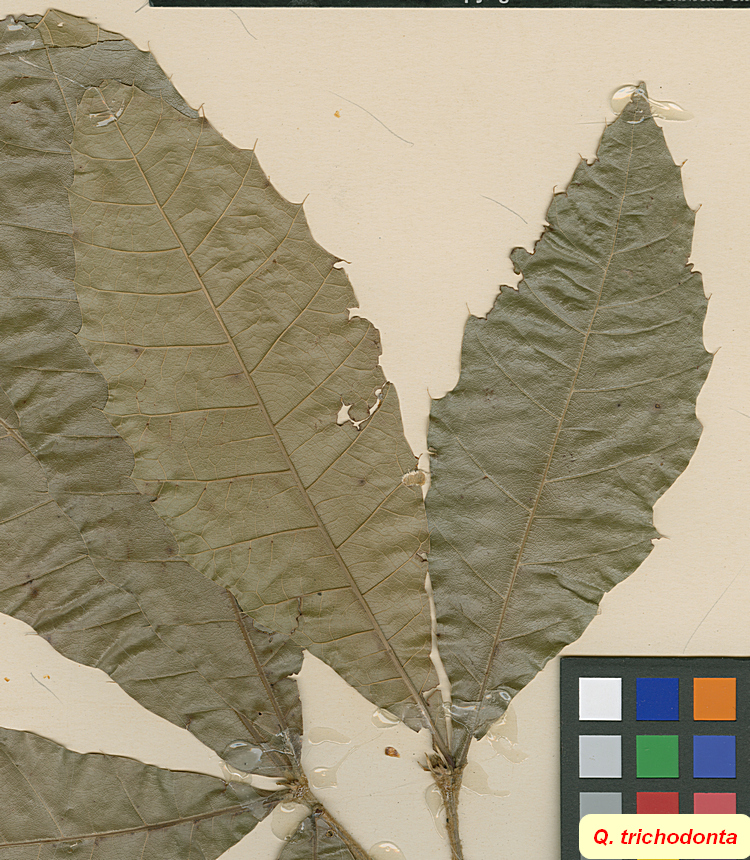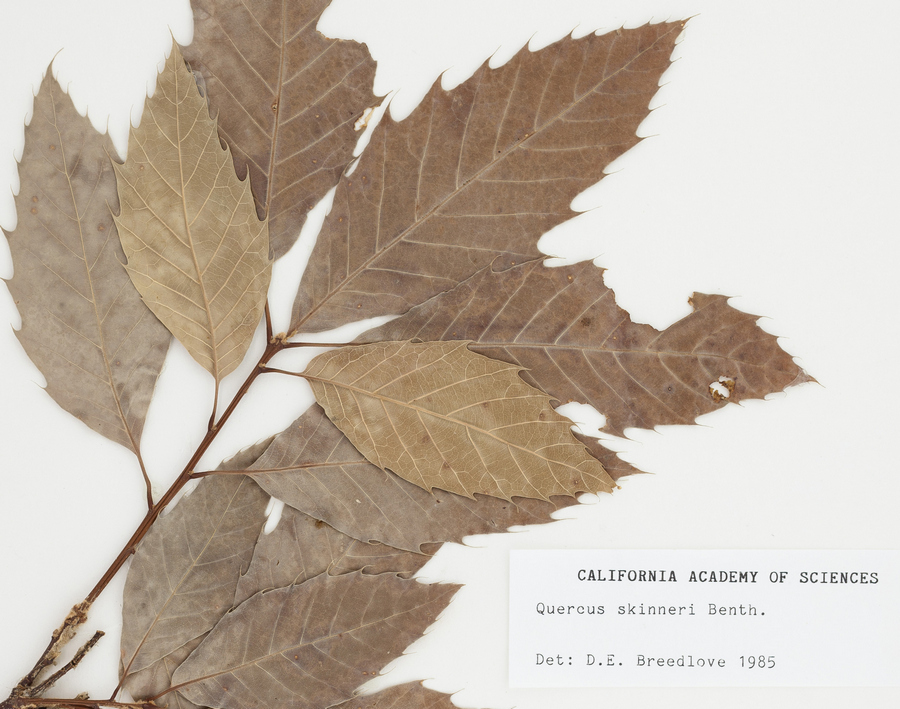| Quercus skinneri | |
| Author | Benth. 1841 Gard. Chron. 1841: 16 |
| Synonyms | chiapasensis Trel. 1915 Diagnosis here grandis Liebm. 1854 Diagnosis here grandis var. tenuipes Trel. 1924 hemipteroides Mull. 1937 salvadorensis Trel. 1930 trichodonta Trel. 1938 |
| Local names | chicharro; |
| Range | southern Mexico (Chiapas, Oaxaca, Tamaulipas, Guerreo, Hidalgo, Veracruz); Guatemala; El Salvador; Honduras; Nicaragua; 700-2200 m; |
| Growth habit | 15-35 m; |
| Leaves | 7-25(-30) cm x 3-10(-12); elliptic or ovate; thin or sometimes semi-leathery; apex attenuate, acuminate, bristle-tipped; base truncate, wide, sometimes cordate or obtuse; margin thick, flat or slightly revolute, cartilaginous, with 10-13 pairs of bristle-tipped teeth; dark green to greyish green adaxially, slightly lustrous, hairless or sometimes with a few trichomes along midrib; paler beneath, glabrous or with some hairs along midvein and axil tufts; 9-15 vein pairs, straight and parallel, flat adaxially; epidermis smooth, papillose; petiole thin, 3-5 cm long, glabrous or nearly so; yound leaves covered with deep red pubescence ; |
| Flowers |
February to March; male catkins 7 cm long, pubescent, usually few-flowered; pistillate ones 0.5 cm long, 1 to 2-flowered; |
| Fruits | acorn ovoid 2-5 cm long, light brown, tomentose, with a very thick pericarp and intruded septa; singly or paired on a 0.5-1.5 cm long peduncle; cup half-round or slightly flattened, not rolled at rim, with appressed, pubescent, strongly tuberculate scales, 3-5 cm wide, enclosing less than 1/4 of nut; maturing in 2 years from July to December; |
|
Bark, twigs and |
bark dark, smooth at first, then fissured into furrows and square plates; twig 1-4 mm in diameter, glabrous or nearly so, reddish brown or sometimes paler, lustrous, with conspicuous pale lenticels; bud glossy brown, ovoid, obtuse, 4-7 mm long, with hairless scales; stipules 7-15 mm long, pubescent, soon deciduous; |
| Hardiness zone, habitat | not hardy ; wet montane forests; fast growing; |
| Miscellaneous | -- Sub-genus Quercus, section
Lobatae, Series Erythromexicanae, Group Acutifoliae; -- Very polymorphic species, often misidentified in the past; for instance, Q. trichodonta and Q. grandis are, in the opinion of today's specialists in the Genus Quercus (like Francisco Garin, Spain), probably valid species which deserve further studies. -- Silvia Romero Rangel, a today's Mexican Author (2006), published her revision of the sub-section Acutifoliae, with many modifications of the previous Classification. |
| Subspecies and varieties |
|
| Pictures |
More pictures HERE
|





